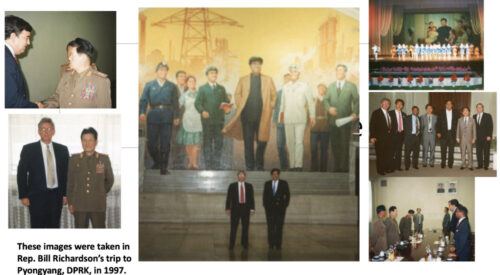
If you wanted us to launch on the Black Sea incident where the Russians knocked down a US Reaper Drone, we were almost going to accommodate you. We still have the technical team working on what the Russians were tyring. It looks like an attempt to drench the Reaper with jet fuel dumped from the tanks of the Flanker fighters. Then they were going to attempt to set fire to the drone while it was still in flight.
It is the first time a US flying machine was knocked down since the Cold War, so you can imagine the group was galvanized. Meanwhile, we may or may not lurch into Spring here in Northern Virginia. The chill wind is blowing and the Cherry Blossoms may be stuck in Stage Three (or six) for a bit longer. It made us poke around in some of the old material about how some parts of this great struggle began. We can worry about the failing banks later, you know?
It is almost sentimental. In the years prior to the great Terrorist attacks of September 11, 2001, Information Operations was understood to be a discipline composed of specialized Computer Network Operations to impact or exploit the reliable information distribution of opponents, while preserving the integrity of your own. With the onset of a global war on terrorism, however, it became apparent that Information Operations is actually a series of activities which encompasses the entire spectrum of information collection, production and dissemination (CP&D).At the most general level, this involved the commercial production of media intended for and financed by the culture to which it is oriented.

(John Rendon, today. Photo Rendon Group).
Things have changed. Twenty-two years later- like, “now,” the Rendon Group is still in business. They were the “go to” organization as we were reeling from the attack. We remember that morning a few decades ago with a real sadness. Back then, we were worried about fighting a war in Afghanistan. We intended to use themes and messages coordinated with John Rendon’s Group, and in consonance with the long range goals of the foreign policy of the United States of America. We intended it to be honest, sympathetic and legal. The goal was “restoration of their sovereignty and traditional Islamic customs” of the nation also conquered by Alexander the Great. We claimed it had been hi-jacked by the Taliban and the criminal Al Qaida network.
We had some great pals, like Hollywood Producer Tracey Alexander. We discovered fairly quickly that what we were proposing was technically illegal. At the time, anyway. is a Rashomen-style treatment of the invasion, told by a Pakistani diplomat, and American Diplomat, a opium smuggler, a female doctor and general, a moderate cleric and an earnest, sincere American Special Forces Lieutenant Colonel.
With the exception of coordinating themes, this effort was intended be free of control by anyone except the Producer and Director, and would be financed through private means. You can see how this all came off the rails back then and has transitioned from being “illegal” under US Code to “standard operating procedure.”
John Rendon began his career in Democratic Party politics, which is a means of saying we would work with people who were good at what they did regardless of the partisan nuances.I was escorting a variety of trips to crisis areas, mostly with Democrat members of Congress.
Take it from us: Democrats are ore fun to travel with than the other brand of politicians. They seem to be proficient in spending other people’s cash. We ran a series of Haiti Trips when that nation was producing matters of illegal immigration. That was followed by Eastern European issues in the conflict attendant to the dissolution of Yugoslavia: Serbia, Croatia and the relations with the NATO nations.
Our favorite trip was done to support former Congressman and Secretary of Energy Bill Richardson, which featured stops in Taiwan, Hong Kong, Bangkok, Rangoon, Beijing and Pyongyang, North Korea. One night in our four days in North Korea included Bill leaning over in the darkness in the courtyard of the Presidential Guest Palace and saying “I may have to send you down to Panmunjong to go across the Bridge of No Return in a borrowed North Korea car.”
Other jobs were less weird. John Rendon kew them all and how things worked. He was a great mentor on how to manage travel in improbable places. Like, “You should have ten grand cash in the wallet, just in case you have to bribe your way out of something. Use hundreds. They stay slimmer.”
His experience was not limited to international affairs. Some of the most valuable was service in George McGovern’s 1972 presidential campaign and subsequent service as the Executive Director and Political Director of the Democratic National Committee. He also managed President Carter’s 1980 Democratic convention in New York; and subsequently worked as Director of Scheduling and Advance for President Carter’s reelection campaign.
It was a rush to work with him. You could see John knew it all, inside and out, and was willing to help us- in Government- get around inconvenient legal issues. There is something like that now being described in the Twitter files.
In 1985, John began working for clients internationally. What he was selling was expertise in Strategic Communications, Crisis Communications, Public Affairs, Political Consulting, Media Monitoring and Analysis, Media Training, Media Relations, Opinion Polling, Social Media, and New Business Risk Analysis. John laughed at the number of places he applied his unqiue expertise. The website he runs now claims the company has applied their skills in 98 countries. I think he wants to hit one-hundred, even, before he retires.
At the time, we proposed a series of films with actionable content. We also planned a series of films which could be made close in spectrum to actual operations, either planned or executed. They would be made with support of the USG, and tailored to support overt and covert action. These films would be made in full accordance with applicable U.S. Code, and would not be intended to conduct information operations in the U.S.
As it turned out, what we planned was determined to be not in conformance with existing law, which is now apparently ignored. We had intended to emphasize the justice of our cause, the commonality of U.S. and local interests, and the concern for local autonomy. Our goal was patterned on the Frank Capra WWII Hollywood-Washington partnership in his film series “Why We Fight.” The target audience was then tailored to the cultures and norms of the individual Theaters of Operations, East and West. And the Middle, which is to say all of us.
Before we were shut down, we viewed Information Warriors as the vanguard of the conflict. Capra’s work in World War II had been judged legal. Ours was not. Now it is.
We were crafting an information strategy that features crackling dialogue, gee-whiz special effects, relationships between patriotic Producers and the Spies, some mature love tinged with desire couched in panorama of righteous global war.
Now we hear that stuff blasted each morning in the News Cycle. Without the mature parts, or the relations of American citizens with one another. It is interesting to see it in action, and to see the same principals used against us. It is another one of those things that happened without legislation, or votes, or anything else. It is now just what is done as a component of the new warfare.
We will see how that works out. It would be interesting to be in the business now. We wonder what our lives might have looked like if they let us break the law back then. Maybe things would have worked out a little bit differently, you know?
Copyright 2023 Vic Socotra
www.vicsocotra.com
